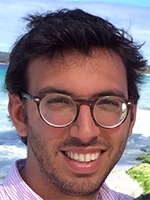Who should apply, and why
Who should apply
The MSc in Water Science, Policy and Management accepts candidates from a range of backgrounds: these include natural/environmental, science, engineering and physical science, economics, politics, law and humanities. The cross-disciplinary nature of the programme means that some aspects of the course will be more challenging than others. For example, someone with an economics background will find the 'Climate & Catchment Processes' module quite challenging, but the 'Water Economics' module will be fairly familiar, with perhaps some new perspectives. The key criteria for selection are:
- academic excellence;
- a demonstrated interest in water, through one or more of previous professional work, education, volunteer activities, or other interests;
- a convincing, well-constructed personal statement submitted with the application.
Candidates from a range of academic backgrounds are accepted, including:
- Natural / environmental sciences,
- Engineering and physical sciences,
- Human and physical geography,
- Economics,
- Politics, law and the humanities.

"Present and future generations of water professionals need to be equipped with the power of ideas and skills to change our planet's future. Every year, as the network of water alumni grows, I am reminded of how this course contributes to achieve that."
Alvar Closas, WSPM course alumnus
Graduate destinations
The aim of the WSPM course is to train future decision makers, managers and policy makers in water policy and management. Past graduates have gone on to obtain positions in a range of water-related jobs. Examples include policy positions in government departments (e.g. Environment Canada, UK Department for Environment, Food and Rural Affairs (DEFRA); Chinese Ministry of Works), business/enterprise (e.g. Arup, ERM, Halcrow, Mott MacDonald, Public Utilities Board-Singapore, SMEC, Global Water Intelligence, etc.), non-governmental organisations (e.g. WaterWise, Children's Hunger Fund, CSE) and international agencies (e.g. World Bank, UNICEF, European Commission, IFAD, GTZ, USAID, etc.).
A number of students use the course as a gateway to start DPhil/PhD research, including Oxford, Princeton, Stanford and UC Berkeley.
How to apply
For more information on making an application, please see the University's admissions website:
You should also consult the University's Application Guide for information on entry requirements and selection criteria.





